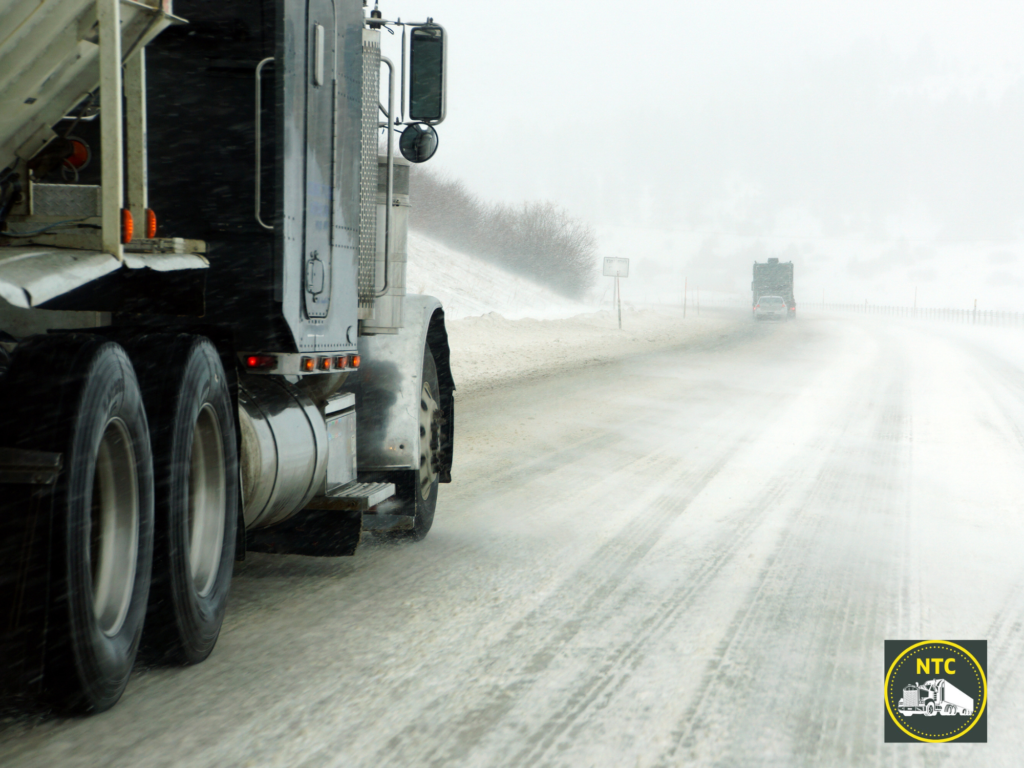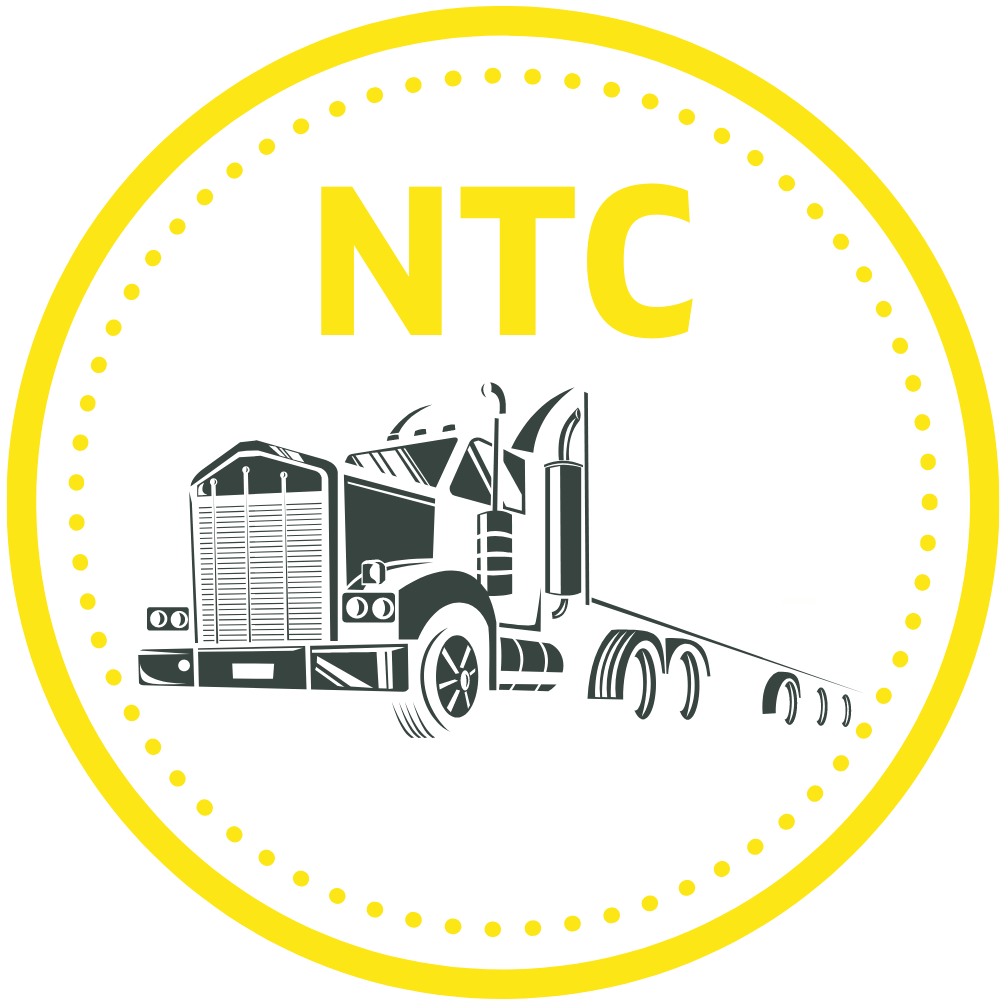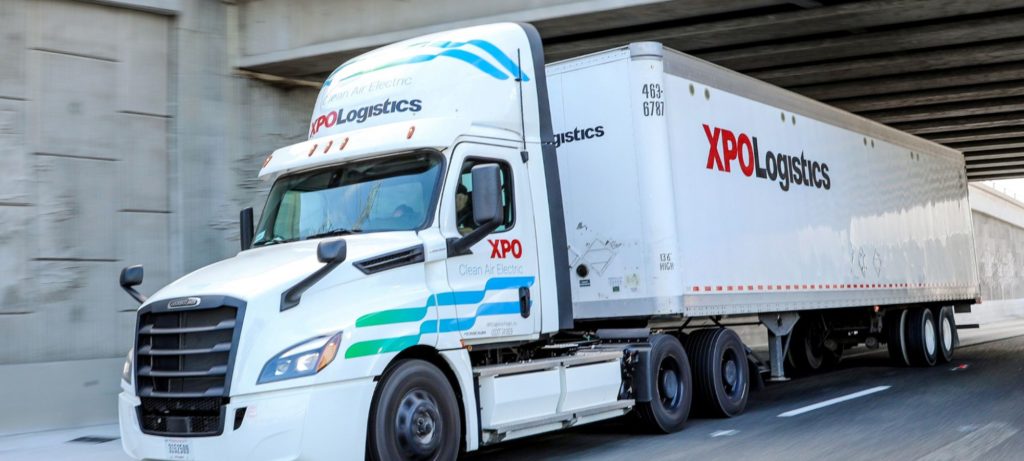Truck accidents are particularly dangerous because of the size and weight of the vehicles involved. Trucks can weigh up to 80,000 pounds, while the average passenger car weighs around 3,000 pounds. This means that in a collision, the smaller vehicle is much more likely to sustain significant damage and the occupants are at a much higher risk of serious injury or death.
Trucks also have a much larger blind spot than passenger cars, which can make it difficult for the driver to see other vehicles around them. This can increase the risk of a collision, especially when the truck is changing lanes or turning.
There are many factors that can contribute to truck accidents, here, we’ll list some of the most common truck accident causes and why they pose dangers to other drivers on the road.

Driver Fatigue
Driver fatigue is dangerous for truckers because it can significantly impair their ability to operate their vehicle safely. When a truck driver is fatigued, they may have difficulty focusing on the road, controlling the vehicle, and reacting to unexpected events. This can increase the risk of an accident, as the truck driver may not be able to avoid hazards or make quick decisions to prevent a collision.
Truckers may be at an increased risk of fatigue due to the demands of their job, which often require long hours of driving and irregular schedules. The monotony of driving for long periods of time can also contribute to fatigue.
It is important for truckers to take steps to prevent fatigue, such as getting enough sleep before a long trip, taking breaks to rest and recharge, and avoiding driving late at night or early in the morning when they are naturally sleepier. If they begin to feel tired while driving, they should pull over and take a break to rest or sleep.
Driver fatigue is an especially common issue with many trucking companies that demand more miles from their truckers than is safe.

Distracted Driving
Like all drivers, truck drivers can become distracted by their phones or other devices while behind the wheel.
Truck drivers may become distracted by a variety of factors, including:
- Cell phones: Truck drivers may use their phones to talk, text, or use apps while driving, which can take their attention away from the road.
- Navigation systems: If a truck driver is using a GPS system or map to navigate, they may be distracted by the device or by trying to read maps or instructions.
- Other passengers: If a truck driver is driving with passengers, they may be distracted by conversation or other interactions with those passengers.
- Food or drink: Truck drivers may become distracted if they are eating or drinking while driving.
It is important for truck drivers to avoid all distractions while driving, and to focus their attention on the road at all times. Trucking companies and individual drivers can also take steps to reduce distractions, such as prohibiting the use of cell phones while driving or providing drivers with trained navigators to handle directions.

Speeding
Truck drivers may feel pressure to meet delivery deadlines and may speed to try to make up time. Speeding is a common problem among truck drivers and it can pose serious dangers to other drivers on the road. When a truck is traveling at high speeds, it takes longer to stop or slow down in response to changing traffic conditions or unexpected hazards. This can increase the risk of a collision, especially if the truck is unable to stop in time to avoid an obstacle or another vehicle.
In addition to the risk of a collision, speeding can also increase the severity of an accident if one does occur. The faster a vehicle is moving, the more force it will have in a collision, which can lead to more serious injuries or fatalities.
There are several reasons why truck drivers may speed, including:
- Pressure to meet delivery deadlines: Truck drivers may feel pressure to make up time if they are running behind schedule and may speed to try to reach their destination faster.
- Boredom: Long periods of driving can be monotonous, and some truck drivers may speed to make the trip more exciting.
- Inexperience: Some truck drivers may not be aware of the dangers of speeding or may not fully understand the effects it can have on their vehicle’s handling and braking capabilities.
It is important for truck drivers to observe posted speed limits and to adjust their speed to match the conditions of the road. Trucking companies can also help to prevent speeding by setting realistic delivery schedules and providing drivers with training on the dangers of speeding.
Poor Vehicle Maintenance
If a truck is not properly maintained, it may be more prone to mechanical failures or breakdowns while on the road. This can cause the driver to lose control of the vehicle or to be unable to stop in time to avoid a collision.
For example, if the brakes on a truck are not properly maintained, they may fail to work effectively when the driver needs to stop suddenly. This can result in a collision with another vehicle or an obstacle on the road.
Other types of mechanical issues that can result from poor vehicle maintenance include tire failure, engine problems, and steering problems. These types of issues can also cause a driver to lose control of the vehicle or to be unable to respond to changing traffic conditions.
It is important for trucking companies to maintain their vehicles in good working order and to conduct regular inspections and maintenance to ensure that the vehicles are safe to operate. This can help to reduce the risk of accidents caused by mechanical failures.
Alcohol or Drug Use
Truck drivers who are under the influence of drugs or alcohol are more likely to cause an accident. And obviously, they’re breaking the law as well as their responsibilities to their employer.
It is difficult to accurately quantify the prevalence of alcohol and drug use in the trucking industry, as it is a problem that is often underreported. However, studies have shown that substance abuse is a significant problem in the trucking industry.
Truck drivers are subject to random drug and alcohol testing and are not allowed to operate a commercial vehicle while under the influence. Trucking companies are also required to have drug and alcohol testing policies in place to help prevent substance abuse among their drivers.

Inclement Weather
Adverse weather conditions such as rain, snow, or fog can make it more difficult for truck drivers to see and control their vehicles, increasing the risk of an accident.
In rainy conditions, roads can become slippery, making it harder for a truck to stop or turn. Visibility may also be reduced, making it harder for the driver to see other vehicles or pedestrians.
In snowy or icy conditions, the risk of a collision is increased due to the reduced traction of the tires on the road. This can make it more difficult for the truck to stop or change direction, and the driver may lose control of the vehicle.
Fog can also reduce visibility and make it harder for the driver to see other vehicles or obstacles on the road.
It is important for truck drivers to adjust their driving behavior to match the conditions of the road, and to take extra care when driving in inclement weather. This may include slowing down, increasing following distances, and using headlights and wipers to improve visibility. Trucking companies can also help to prevent accidents by providing drivers with training on how to handle driving in different weather conditions.
Improper Loading
If a truck’s load is not properly secured, it can shift while the truck is in motion, causing the driver to lose control of the vehicle. This can be especially dangerous if the load is large or heavy, as it may be more difficult for the driver to regain control of the truck.
Improper loading can also lead to accidents if the load is not balanced properly. This can cause the truck to become unstable or to tip over, particularly when the truck is making turns or traveling on a steep grade.
In addition to the risk of an accident, improper loading can also cause damage to the truck itself. If the load is too heavy, it can put excessive strain on the truck’s suspension and tires, which can lead to mechanical problems or failures.
It is important for trucking companies to ensure that their loads are properly secured and balanced to prevent accidents and damage to the truck. Drivers should also be trained on how to properly load and secure their trailers.
Aggressive Driving
Regardless of the type of vehicle, aggressive driving increases the risk of accidents.
For truck drivers, aggressive driving can be particularly dangerous due to the size and weight of their vehicles. A truck’s large size and weight can make it more difficult to stop or change direction quickly, which can increase the risk of an accident if the driver is behaving aggressively.
Truck drivers who engage in aggressive driving behaviors may be more likely to cause an accident, either by colliding with another vehicle or by forcing other drivers to take evasive action to avoid a collision.
It is important for truck drivers to avoid aggressive driving behaviors and to follow the rules of the road to ensure the safety of themselves and other road users. Trucking companies can also help to prevent aggressive driving by providing training to their drivers on safe driving practices and by setting policies to discourage aggressive behaviors.
Were You in an Accident with a Commercial Truck? Get a Truck Accident Lawyer Today
If you were in an accident with a semi-truck or other commercial shipping vehicles, contact National Trucking Claims to get connected with a truck accident lawyer for free. A truck accident lawyer can help you with:
- Investigating the accident: A lawyer will gather evidence such as police reports, witness statements, and photographs of the accident scene to determine the cause of the accident and who may be at fault.
- Negotiating with insurance companies: A lawyer will handle communications with insurance companies on your behalf, including negotiating a settlement to cover your damages.
- Filing a lawsuit: If a settlement cannot be reached with the insurance company, a lawyer may be able to file a lawsuit on your behalf to seek compensation for your damages.
- Representing you in court: If a lawsuit is necessary, a lawyer will represent you in court and present evidence and arguments on your behalf.
- Advising you on your legal options: A lawyer can provide guidance to you on your legal rights and options, and will help you understand the legal process and the likely outcomes of your case.
Start today by filling out our contact form.




